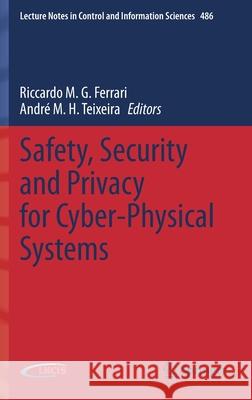Safety, Security and Privacy for Cyber-Physical Systems » książka
topmenu
Safety, Security and Privacy for Cyber-Physical Systems
ISBN-13: 9783030650476 / Angielski / Twarda / 2021 / 394 str.
Kategorie:
Kategorie BISAC:
Wydawca:
Springer
Seria wydawnicza:
Język:
Angielski
ISBN-13:
9783030650476
Rok wydania:
2021
Wydanie:
2021
Numer serii:
000034709
Ilość stron:
394
Waga:
0.73 kg
Wymiary:
23.39 x 15.6 x 2.24
Oprawa:
Twarda
Wolumenów:
01
Dodatkowe informacje:
Wydanie ilustrowane











